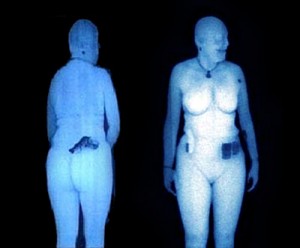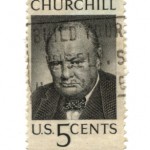
The new security measures in U.S. airports offer the traveler the option of a full body scan that presents a naked picture of the traveler to the TSA employee paid to gawk (see image). And yes, if you are a guy, they can see your junk, and in remarkable detail.
If you choose not to appear naked before strangers, you have the option of being groped by the government.
This gawk or grope strategy is the latest from the government for catching Islamic terrorists.
Christians are right to be offended by gawk and grope but not just because it is smells like pornography and sexual assault. In fact, I apologize if the image on this blog post offends you. I debated whether to use it but decided that people being informed on this issue outweighed any offense.
Still, the larger issue here is one of freedom and at what point one is willing to trade it for security.
I would like to offer Kingdom citizens some perspective, a view from 35,000 feet, and suggest a better reason for Christians to be offended.
I’ve heard many say, “If it means I can fly without worrying about the plane being blown up I’m fine with it.” So, what happens when Islamic terrorists start putting bombs in their anuses where they are shielded from the new scanners? Will we then submit to full body cavity searches? If it meant flying safely would you be willing to do it?
People prefer freedom to tyranny. There is no surprise there. But throughout history people have made the choice to give away their freedom. The choice is usually not between freedom and tyranny, but between a little less freedom and a little more tyranny in exchange for a little more safety or security. That is the trade being offered right now.
To those who hope only in this life, the trade seems a reasonable one. If death is the end, then trade all to avoid it, even one’s freedom.
Christians should not suffer from such shortsightedness. Their hope is not in this world only. Christians therefore should be the quickest to draw the line against tyranny, the staunchest defenders of freedom, even if it means incurring a greater risk to their safety.
When Christians are willing to do that, they will begin to wear the mantle of freedom intended for every citizen of the Kingdom of God, and they will be seen by the world as protectors of freedom.
I’m not suggesting where you should be willing to draw that line, but I do want to suggest why you should be willing to draw it. “It was for freedom that Christ set us free; therefore keep standing firm…” (Galatians 5:1). GS




